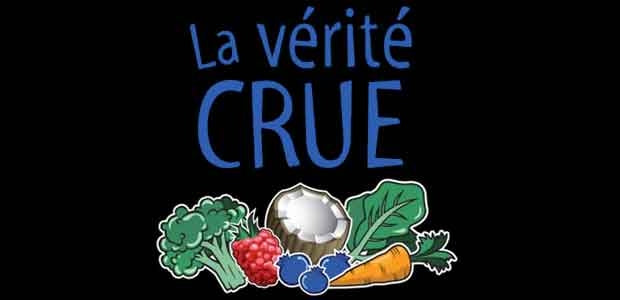Raw food is certainly one of the hottest trends right now. But why has it become so popular? Eating raw food maximizes its nutritional value while minimizing additives.
1. Raw food
The name "raw food" may conjure up images of people eating raw steaks, which may sound rather strange... In general, a raw diet consists of foods that are not cooked or processed, such as fruits, vegetables, nuts, seeds and legumes. The raw diet includes small, variable quantities of cooked foods (including steak). People who follow a strict raw diet eat 95% raw, while others eat more than 70%. By definition, a raw diet includes foods that can be cooked up to 40° C, since higher heat would destroy the enzymes present in the food.
2. Proven health benefits
Whether you decide to opt for an exclusively raw diet, or simply eat raw more often, eating more raw foods has many health benefits. Raw foods from plant sources are naturally low in fat, sodium and calories. The fiber and enzymes in raw foods promote digestive health. Raw foods are also alkalinizing.
Dozens of research studies have demonstrated the health benefits associated with a diet rich in raw plant foods. In 2008, the British Journal of Nutrition reported that people eating a strict raw diet had high levels of carotenoids. Carotenoids are found in fruits and vegetables and are associated with a reduced risk of chronic diseases such as cancer.
Raw food may also be good for the heart. According to the Journal of Nutrition, researchers examining the blood of 201 raw food eaters found that they had low cholesterol and triglyceride levels - great news for their hearts!
3. Potential pitfalls of the raw food diet
Every type of diet has potential nutritional pitfalls, but these can be avoided by knowing which foods can help. The British Journal of Nutrition reports that people on raw diets had low levels of lycopene, and suggests the addition of cooked tomato dishes. In addition, the Journal of Nutrition found that 38% of people on a raw diet were deficient in vitamin B12, which could explain the high levels of homocysteine (a heart-damaging lipid) in the blood. A vitamin B12 supplement would therefore be advisable. A raw diet may also be lacking in protein and iron. There are many good raw sources of protein (nuts, seeds and legumes) and iron (legumes, peas, fish). Calcium is another nutrient of concern, according to research published in the Archives of Internal Medicine, which reports low bone density in long-term vegetarians. You can find calcium in dark green leafy vegetables (cabbage, broccoli), raw almonds and supplements. It's also worth noting that it's important to follow food safety guidelines if you choose to eat fish or raw meat.
4. But rabbit food isn't filling
If you're still skeptical about raw food despite the long list of health benefits, consider this: according to the Journal of Medical Investigation, raw vegetables make you feel fuller.. The study published in 2014 reports that boiled vegetables were much less satiating. So it looks like raw vegetables could help you slim down! Raw foods have health benefits and are naturally delicious and satiating; maybe we should all eat them more often.
5. Tips for incorporating raw foods into your diet
1) Think about eating raw more often instead of making drastic changes
2) Start your day with a smoothie, preferably a green one
3) Fill the fridge with delicious raw foods
4) Stock the pantry with nuts, seeds and dried fruit
5) Add flavor with delicious dips and garlic hummus, for example.
6) Use the food processor, dehydrator, blender and juice extractor for even more culinary options.
6. The nutritional benefits of eating more raw foods:
- Alkalinizing effect on the body
- Natural enzymes aid digestion
- Low in calories and unhealthy fats
- High fiber content
- Fruits and vegetables help reduce the risk of several diseases
- Low sodium content
7. Alkalizing?
Fortunately, you don't need a PhD to benefit from the alkalinizing effects of a raw food diet. Simply put: 1) When you eat a food, it affects your body's pH. 2) The body is at its healthiest when the pH is alkaline. 3) Eating raw foods promotes the body's alkalinity.


